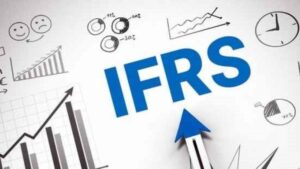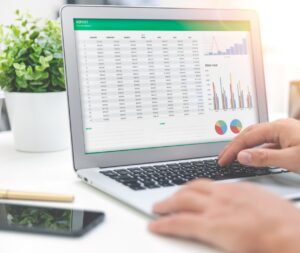Value Added Tax (VAT) Course
Course Fee:
Course Objectives
Upon completing this VAT course successfully, participants will be able to:
• Explain VAT and understand the depths of how it works
• Apply VAT procedures
• Prepare to pass a VAT audit successfully
• Review and improve your own VAT registration process
• Practice VAT calculations, and learn about the accounting principles and documentation requirements to file VAT returns accurately
• Comprehend the theory behind VAT and get an outline of the VAT regulations
• Identify the risks behind improper VAT management
• Recognise how to interpret your VAT balance
• Gain expertise in VAT implementation and learn how to navigate management challenges
• Explore VAT application across multiple industries – identify similarities and differences
Course Outline
FUNDAMENTALS OF VALUE ADDED TAX
• Introduction to value-added tax
• Basic characteristics of taxable supplies – goods and services
• Taxable persons
• Taxable amount – VAT rates and exemptions
• Place of supply – Goods
• Place of supply – Services
• Deduction and recovery of input tax
• Administrative elements of VAT
VAT CONCEPT
• Concept and motive of VAT
• Input and Output VAT
• Supplies, Goods and Services
CATEGORIES OF SUPPLIES
• Taxable Supplies
• Reduce rated Supplies
• Zero-rated Supplies
• Exempt Supplies
• Zero Rated Vs. Exempt
VAT REGISTRATION
• When to register for VAT?
• Who should register for VAT?
• Exceptions to VAT registration – when is it not required?
• Mandatory vs Volunteer VAT registration
• How do you consider the sale of Capital Assets when calculating a VAT threshold?
• VAT registration applicability on non-residents
• The concept of Group VAT registration
DATE OF SUPPLY RULES
• Date of Supply Rules under VAT
• What are the special circumstances for the date of supply rules?
• For consecutive supplies (e.g. construction contracts)
PLACE OF SUPPLY RULES
• How to establish the place of supply of any goods/services
• Place of supply of goods
• Place of supply of services
VALUE OF SUPPLY RULES
• Determine the VAT amount under Value of Supply Rules
• Value of Supply
• Value of Import
• Effects of landed cost components and customs duty on VAT
VAT EXEMPTIONS
• VAT considerations for selling exempt items
• Impact of VAT exemption on certain industries
• Residential buildings
• Financial services
• Bare land
• Local passenger transport
• Exemptions and suspension of VAT for imports
VAT CALCULATION
• When should VAT be accounted for?
• Calculating Input VAT (Purchases)
• Calculating Output VAT (Sales, Services, Charitable Contributions, and Gifts)
VAT ADMINISTRATION
• Filing VAT returns
• The timing for VAT Filing
• Case Study – VAT return filing
• Claim for VAT Refunds
VAT PENALTIES
• Late payment penalties
• Error penalties
• Default interest rate
VAT ON IMPORTS/ EXPORTS
• Calculating output VAT on exports
• Calculating input VAT on imports
MREVERSE CHARGE MECHANISM AND VAT ON IMPORTS
• The concept of Reverse Charge Mechanism
• Accounting entries in Reverse Charge Mechanism
• Tax calculation and reconciliation
• The implication of import VAT on shipments
• VAT on imports by unregistered persons
VAT INVOICES AND RECORDS
• Layout of the VAT invoice
• Charging VAT on invoice price
• Keep track of VAT invoices
FILING OF VAT RETURN
• Data and documentation requirements for the filing of VAT returns
• VAT return structure
• Understanding the different elements of VAT return
• Calculating and adjusting the Reverse Charged VAT
• Rightful claiming of input VAT on expenses
• Adjustment for the profit margin scheme
• Exempt supplies apportionment of expenses
• VAT refund application
• VAT payment
Methodology
The training methodology integrates lectures, interactive discussions, collaborative group exercises, and illustrative examples. Participants will acquire a blend of theoretical insights and hands-on practical experience, emphasizing the application of learned techniques. This approach ensures that attendees return to their professional environments equipped with both the competence and self-assurance to effectively implement the acquired skills in their responsibilities.
DATE:
1ST BATCH: 27th – 30th Jan, 2026
2ND BATCH: 19th – 22nd May, 2026
3RD BATCH: 15th – 18th Sep, 2026
Course Category
- Human Resource and Admin
- Finance and Accounting
- Internal Audit and Fraud Control
- Stores, Procurement and Supply Chain
- Information Technology
- Aviation and Maritime
- Banking, Investment and Insurance
- Business Communication
- Construction Management & Civil Engineering
- Engineering, Instrumentation and Maintenance
- Entrepreneurship and Business
- Hotel & Hospitality Management
- Law and Contract Management
- Management and Leadership
- Project Management
- Public Relations
- Public Sector
- Sales, Marketing & Customer Service
- Secretaries & Personal Assistants
- Transport & Logistics
- Security and Safety
More Courses
VENUE
25, Queen street, Alagomeji Bus Stop, Yaba, Lagos







